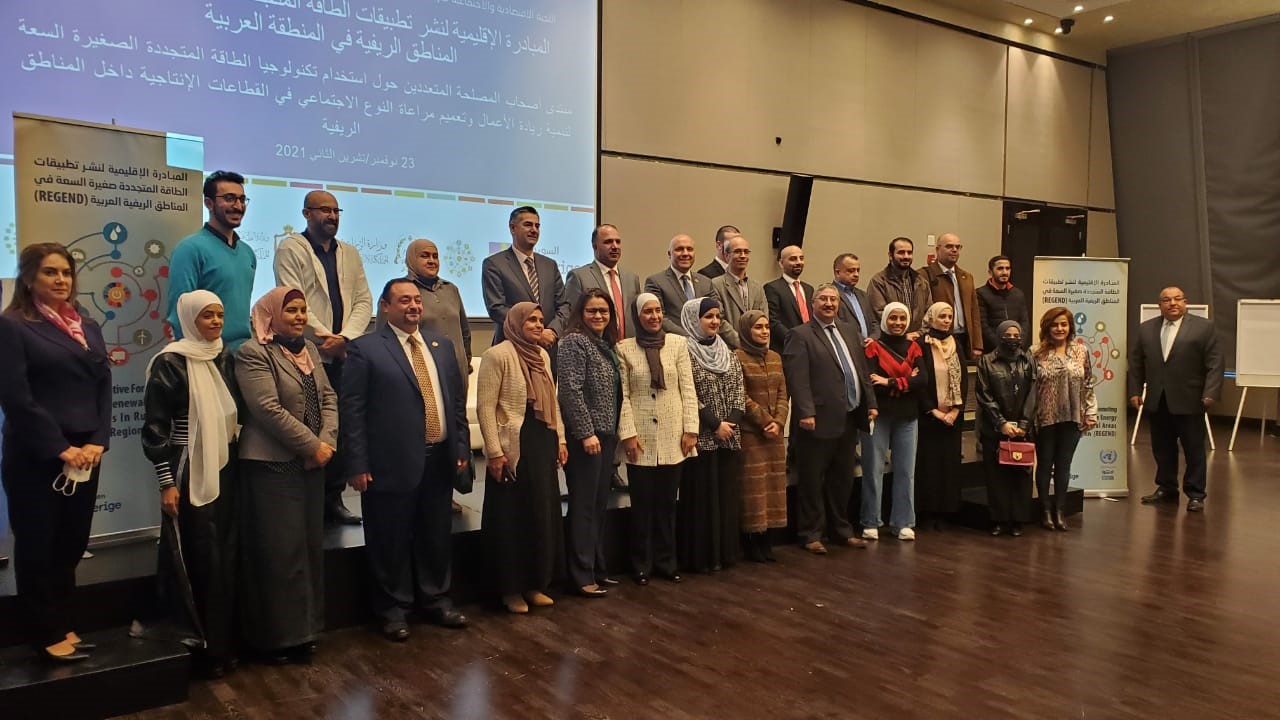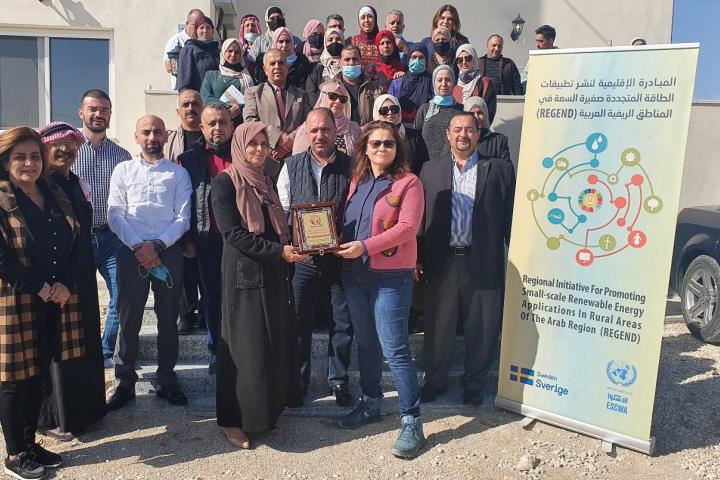Renewable Energy Applications in Rural Areas

ESCWA's “Regional Initiative for Promoting Small-Scale Renewable Energy Applications in rural areas of the Arab region" (REGEND) aims to improve the livelihoods, economic benefits, social inclusion and gender equality of rural communities in Jordan, Lebanon and Tunisia. This regional initiative, funded by the Swedish International Development Cooperation Agency, addresses energy poverty, water scarcity, vulnerability to climate change and other challenges related to natural resources.
Under REGEND, and within the framework of the Eleventh International Forum on Energy for Sustainable Development, ESCWA, in partnership with the Ministry of Energy and Mineral Resources and the Ministry of Agriculture, is organizing a multi-stakeholder forum on the use of small-scale renewable energy technology in entrepreneurial development and gender mainstreaming in productive sectors within rural areas. The objectives are to:
- Present and reflect on REGEND’s best practices, success stories, and lessons learned and discuss effective and sustainable partnerships for future coordination and collaboration after the initiative's completion;
- Bring together a diverse range of national stakeholders and assist them to design and implement, in a participatory manner, solutions to the issues and opportunities identified by REGEND;
- Function as a platform for information exchange and dialogue and stimulate the institutionalization of rural entrepreneurial activities;
- Assist in the establishment of an active network of practitioners within the productive sectors of rural areas and thus strengthen local capacities to increase the uptake of small-scale renewable energy and attract investment;
- Develop a strategic agenda on renewable energy and rural development, devising practical projects to spread awareness on renewable energy technologies and their application in integrated sustainable development models for empowering rural women and youth.

